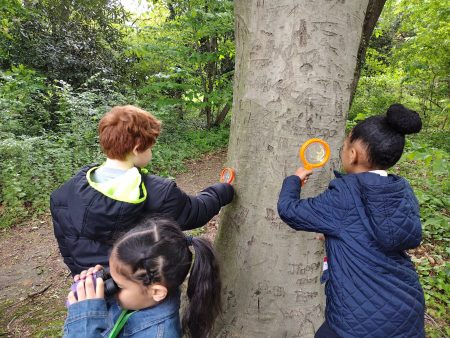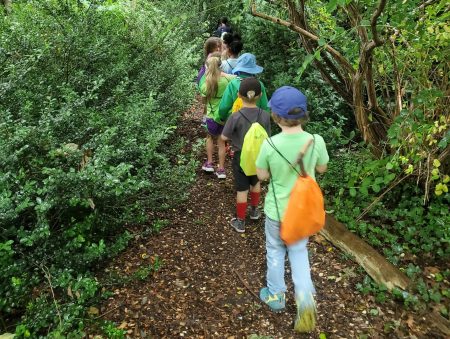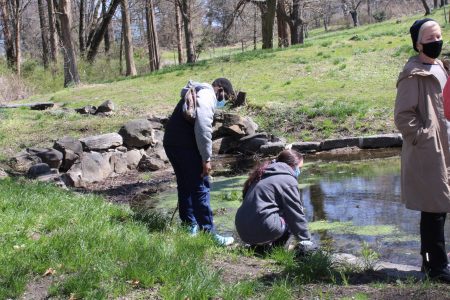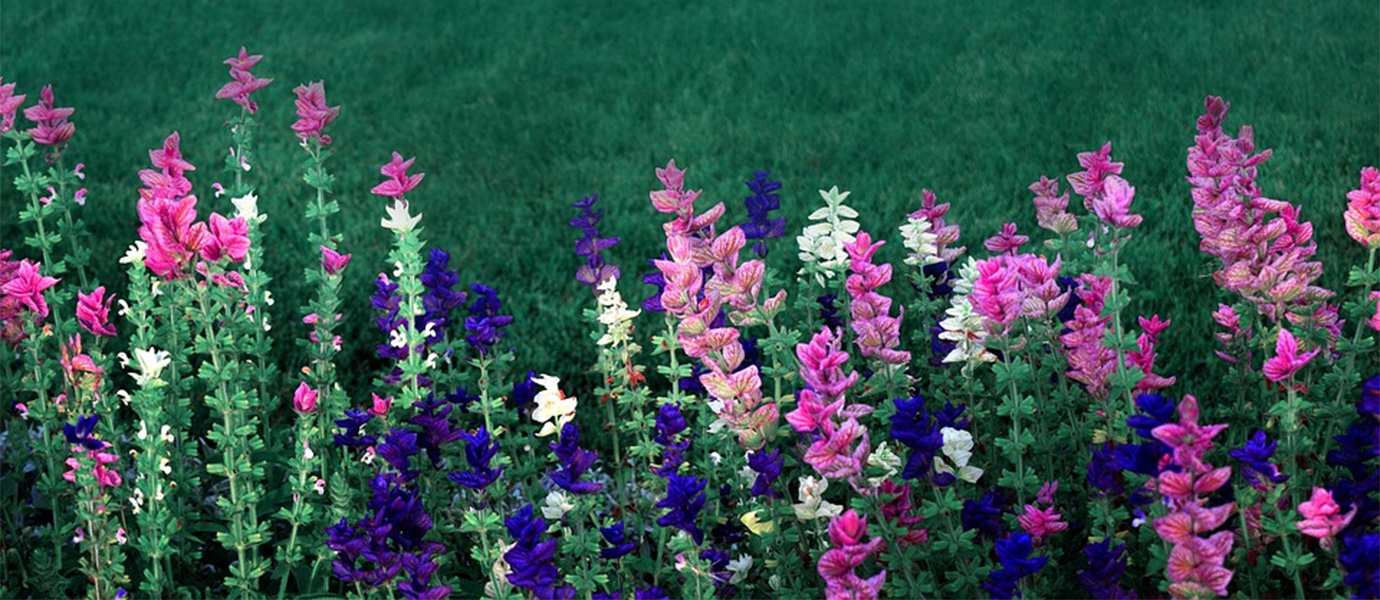
FIELD TRIPS
Students will explore the multi-faceted landscape at Awbury Arboretum, which includes the Farm at Awbury, a meadow of native plants, wetlands and ponds, the beech grove, the English Picturesque Landscape, and historic Francis Cope House.
Choose from our menu of 8 different educational topics with hands-on STEM activities. Morning and afternoon slots are available. Free to Philadelphia public and charter school students; all other pay a fee. We support neurodivergent and handicapped classrooms. Special curricula available upon request.
supports classroom learning in:
American History, Botany, Environmental Studies
topics covered:
Agriculture, Animal habitats, Ecosystems, Environment, Native American culture, Local history, Pennsylvania native species, Pond life, Watersheds
contact info
Name: Hideko Secrest
Phone: 215-849-2855
Email: [email protected]
INFO
ABOUT
Awbury Arboretum
Awbury Arboretum boast 30 acres of rolling hills, meadows, woodland, watershed, creek and ponds as well as 16 acres of farmland with active urban farms and goats and chickens. Entrance is free from dawn to dusk year-round.
contact info
Hrs: Sunrise-Sunset.
HELPFUL LESSON PLAN(S)
Prepared by FieldTripDirectory.com
Botanical Garden Lesson Plan
FUN FACTS
The diverse world of plants is perhaps the weirdest, and most fascinating, of all living things. Bamboo can grow over three feet in one day (you can literally watch it grow). There are 600 species of carnivorous plants, which trap and digest insects, frogs, or small birds (if a vegetarian eats this plant, are they still a vegetarian?). The world’s largest flower, Rafflesia, can grow up to three feet in diameter (how big would a bouquet be…). Do a little digging on your next trip to a botanical garden (not literally!), and see what interesting plant facts you can find.
View Lesson Plan>>
FIELD TRIPS
Campers will explore the multi-faceted landscape at Awbury Arboretum, which includes the Farm at Awbury, a meadow of native plants, wetlands and ponds, the beech grove, the English Picturesque Landscape, and historic Francis Cope House.
Choose from our menu of 8 different enriching topics with hands-on STEM activities. Morning and afternoon slots are available. We support neurodivergent and handicapped classrooms.
topics covered:
Agriculture, Animal habitats, Ecosystems, Environment, Native American culture, Local history, Pennsylvania native species, Pond life, Watersheds
contact info
Name: Hideko Secrest
Phone: 215-849-2855
Email: [email protected]
INFO
ABOUT
Awbury Arboretum
Awbury Arboretum boast 30 acres of rolling hills, meadows, woodland, watershed, creek and ponds as well as 16 acres of farmland with active urban farms and goats and chickens. Entrance is free from dawn to dusk year-round.
contact info
Hrs: Sunrise-Sunset.
HELPFUL LESSON PLAN(S)
Prepared by FieldTripDirectory.com
Botanical Garden Lesson Plan
FUN FACTS
The diverse world of plants is perhaps the weirdest, and most fascinating, of all living things. Bamboo can grow over three feet in one day (you can literally watch it grow). There are 600 species of carnivorous plants, which trap and digest insects, frogs, or small birds (if a vegetarian eats this plant, are they still a vegetarian?). The world’s largest flower, Rafflesia, can grow up to three feet in diameter (how big would a bouquet be…). Do a little digging on your next trip to a botanical garden (not literally!), and see what interesting plant facts you can find.
View Lesson Plan>>
FIELD TRIPS
Homeschoolers can explore the landscape at Awbury Arboretum through Homeschool Classes. Tours of the arboretum allow homeschool groups to see the meadow of native wildflowers, the wetlands habitat, and the Secret Garden. Homeschoolers will enjoy poetry, art, nature, wildlife, Native American history, and other programming at the arboretum.
topics covered:
Agriculture, Animal habitats, Ecosystems, Environment, Native American culture, Local history, Pennsylvania native species, Pond life, Watersheds
contact info
Name: Hideko Secrest
Phone: 215-849-2855
Email: [email protected]
INFO
ABOUT
Awbury Arboretum
Awbury Arboretum boast 30 acres of rolling hills, meadows, woodland, watershed, creek and ponds as well as 16 acres of farmland with active urban farms and goats and chickens. Entrance is free from dawn to dusk year-round.
contact info
Hrs: Sunrise-Sunset.
HELPFUL LESSON PLAN(S)
Prepared by FieldTripDirectory.com
Botanical Garden Lesson Plan
FUN FACTS
The diverse world of plants is perhaps the weirdest, and most fascinating, of all living things. Bamboo can grow over three feet in one day (you can literally watch it grow). There are 600 species of carnivorous plants, which trap and digest insects, frogs, or small birds (if a vegetarian eats this plant, are they still a vegetarian?). The world’s largest flower, Rafflesia, can grow up to three feet in diameter (how big would a bouquet be…). Do a little digging on your next trip to a botanical garden (not literally!), and see what interesting plant facts you can find.
View Lesson Plan>>
